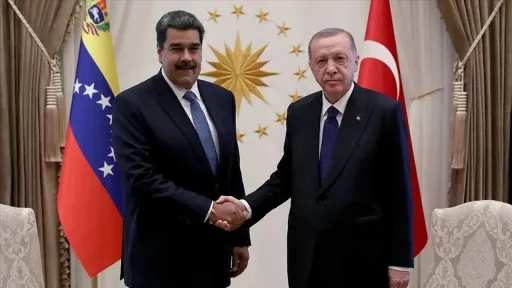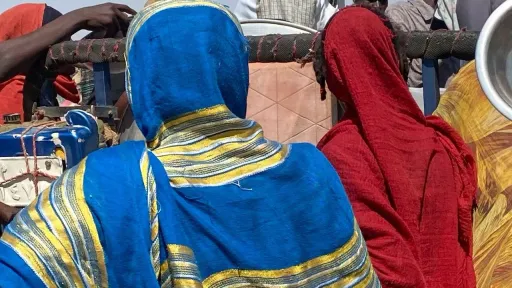By Sylvia Chebet
Under the Congo rainforest's thick, lush green canopy, hunters and poachers smear glue on random vines and branches and patiently wait for their prey to perch.
Meanwhile, just north of the equator in the open forests and grasslands of the West and Central Africa region, other hunters stealthily follow tracks, digging up burrows and breaking open hollow palm trunks.
They aim to capture the ball python, a near-threatened species, and the endangered African grey parrot. Both animals are sought-after worldwide by collectors of exotic pets.
The African grey parrot is a favourite not just for its velvety plumage but also for its intelligence. The species is known to have the ability to develop a vocabulary equivalent to that of a five-year-old child and memorise up to 200 words.
World Animal Protection International estimates that thousands of wild animals are caught daily in Africa and traded in the global multibillion-dollar market as exotic pets.
"We are talking about around twelve million African grey parrots and nearly four million ball pythons being smuggled out of Africa in the last 40 years," Edith Kabesiime, the organisation'swildlife campaign manager, tells TRT Afrika.
Big money at play
Currently, the annual value of global trade in wildlife stands at US $30-42.8 billion, of which $20 billion worth of transactions are estimated to be illegal.
World Animal Protection has flagged poaching on an industrial scale to cater to the demand for exotic pets.
"In my culture, you could be ostracised if you keep wild animals. But we get people who think it's fancy to keep wildlife at home and show them off," says Kabesiime.
According to the Convention on International Trade in Endangered Species, the biggest markets for exotic pets are the US, Canada, Europe (Germany, the UK and France) and some Asian countries, notably Japan.
Global internet connectivity and transnational air travel are increasing the desire for and availability of wildlife. It's not surprising to find pictures of people brazenly posing with a python, a cobra or a scorpion on Instagram and Facebook accounts.
Many other wildlife species, including chameleons, turtles and tortoises, are part of this illegal spectacle. Some of these animals, such as the critically endangered pancake tortoise, come from Kenya.
Besides reptiles and birds, Kabesiime has noted an increasing fascination among collectors even for predators like lions, leopards and cheetahs. She sees it as a trend triggered by growing affluence.
"Many affluent families in the Middle East believe that keeping a cheetah, a leopard, a tiger or a lion cub in one’s home is some sort of affirmation and prestige," Kabesiime tells TRT Afrika.
Only 10% of these illegally captured animals reach their intended destinations after they are captured.
"From a conservation perspective, if you are going to lose around 90% of the animals that you have captured from the wild, that means that we are feeding an industry akin to a bottomless pit," says Kabesiime.
Threat of extinction
Conservationists say the exotic pet trade is one of the biggest threats to wildlife species. World Animal Protection reports that 99% of the African grey parrot population in Ghana has been wiped out. The species has already become extinct in Togo.
From the moment of capture, a journey of cruelty begins for the wild animals.
Kabesiime explains that once traffickers capture the African grey parrot, they chop off the feathers so the birds can't escape. They will then be put in very tiny boxes or cages for transportation.
Tortoises and snakes, including adult ball pythons that grow up to five feet, are stuffed into suitcases.
Those who survive the perilous journey are subject to a lifetime of chronic physical and psychological suffering.
"For a wild animal, life as a pet is a sentence to life in captivity," says Kabesiime.
Researchers have observed exotic pets displaying behaviours that they liken to emotional trauma in humans. Parrots rip out their feathers due to isolation and chronic stress – just like self-harm by humans.
Awareness and regulation
As wildlife campaign manager for World Animal Protection, Kabesiime has been at the forefront of efforts to reverse this trend.
In 2017, the organisation launched a campaign called "Wildlife. Not Pets" to save wildlife from being held captive in homes as exotic pets.
"We have been working with platforms like Facebook and Instagram to ensure these channels are not misused for cruelty against animals in the name of flaunting exotic pets," says Kabesiime.
World Animal Protection also got major airlines to commit to issuing a global embargo on exotic wildlife being ferried by their aircraft.
A campaign is underway to convince source and transit nations to suspend the export of animals.
Pressure is mounting on the US, Europe, and some Asian and Middle Eastern countries to clamp down on importing wildlife.
As Kabesiime emphasises, it's time to turn the tide and keep wild animals where they belong.
➤Click here to follow our WhatsApp channel for more stories.
























